by John Brown, HaveFunBiking.com
With Thanksgiving long gone, we are firmly in the grip of winter. With colder days and darker nights, my thoughts turn to visibility on my daily commute. Here is some info and a few tips on staying visible while riding at night.
Types of Visibility
The main forms of clarity we focus on are passive and active. Things like reflectors and bright colors are forms of passive visibility, while lights and blinkers are great examples of an active visual form.
Passive visibility
Many rides start in the light and only devolve into darkness as the ride stretches on. Provided that your ride is under street lamps or some form of light, passive clarity will get you home safely. The lowly reflector is the most common form of passive visibility. Luckily, reflectors are required by the CPSC to be installed on all bicycles sold in the united states. Reflectors come in two colors, white (front and wheels) and Red (rear). Additionally, many apparel companies install reflective materials onto their products and work like the reflector on your bike, taking any light thrown at you and returning it back to the source. Where passive reflectivity falls short, is when there is no light source to activate the visibility.
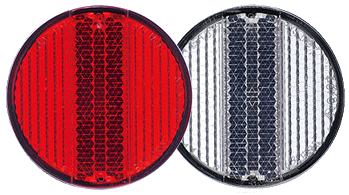
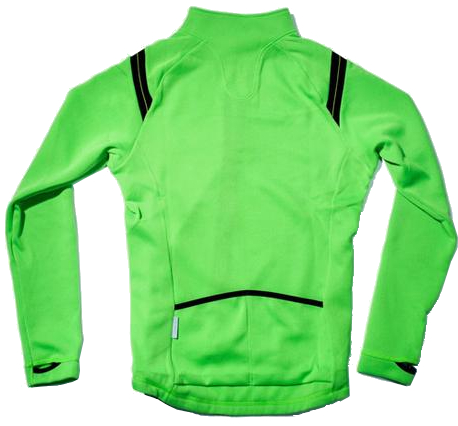
Active visibility
When the area is devoid of a light source you need to create that light to keep yourself safe. For cyclists, Lights and blinkers are the most common visibility product. Where the light and the blinker differ is that blinkers are designed to be seen while lights allow a rider to both see and be seen.
Great lights are usually rechargeable and use an LED bulb. For riders who spend a lot of time off-road or on unlit paths, these lights are a necessity. While most mount onto the bars or helmet, there are a few companies who integrate lights into the bike or helmet.
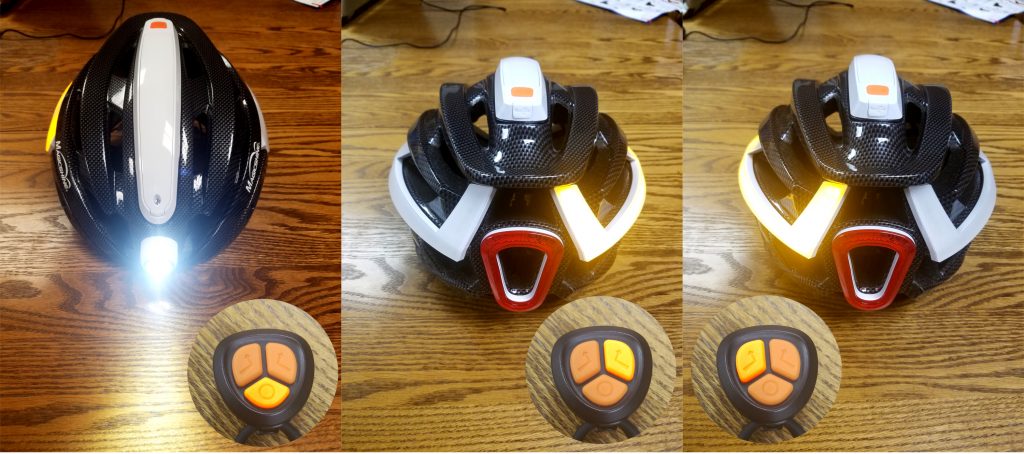
Blinkers are usually battery operated and use an LED to flash intermittently. These blinkers can easily be mounted to your bicycle and in some instances, are incorporated into helmets, gloves, shoes, saddles and handlebars.
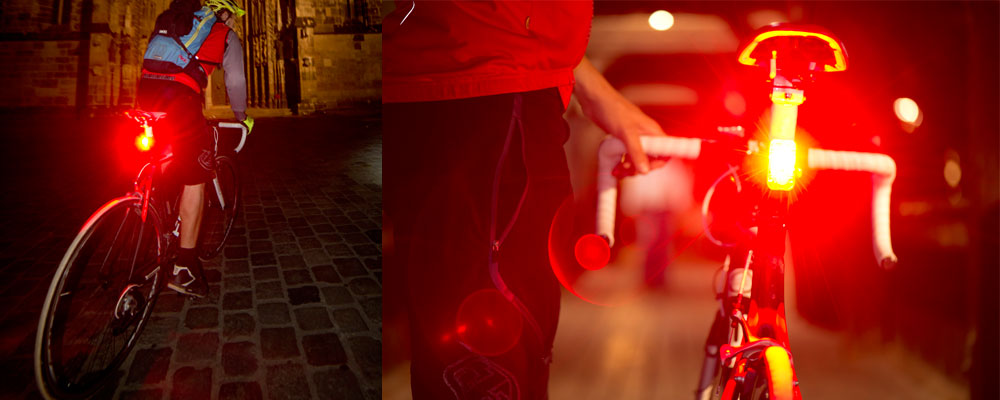
What to use
Overall, think ahead before your next ride and pack to insure you can see and others can see you. Mount a pair of blinkers to the bike (one front and one back) so when you get stuck in low light conditions, you can simply switch the blinkers on. If your route is going to be unlit for any portion, a front light makes things safer. Additionally, be sure to wear highly visible clothing in combination with any other gadget.


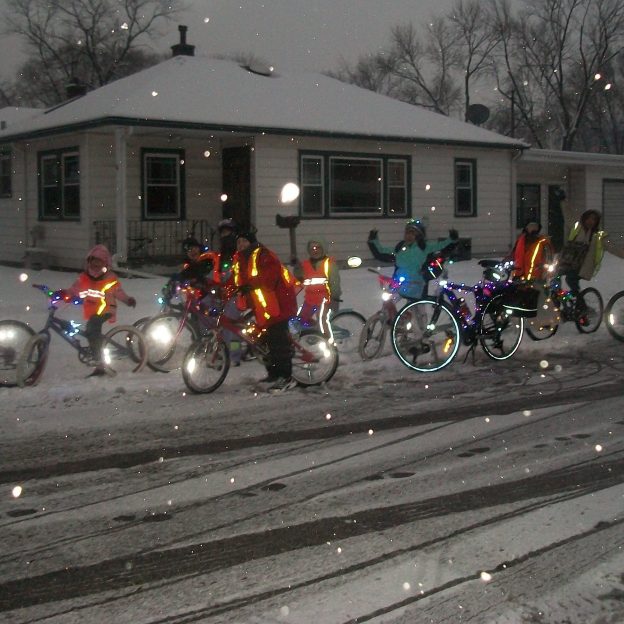
Comments
4 responses to “Visibility and you, staying safe while riding your bike at night”
Wish that some kind of price range and area availability were also added. Nice to see some of the products but then I would have to spend 5 to 6 hours to see which stores offer them and what the cost is going to be! A thought for another article. Has anyone on your staff looked into the ability to changing from a standard summer tire to a more winter tread size of a tire.
Thanks Stephen, For lights, the price ranges generally from a few dollars well into the hundreds.
As for winter to summer tires, we are doing some articles like that in the near future. Stay tuned!
Greetings from Madison, WI. My wife and I have been living here for a year after moving from St. Paul.
Our house is on a route for reaching the Trek headquarters, to the east of Madison. All Trekies are using daytime running lights, which work in extremely well during dull winter days and nights.
Here is a link to a reason for using daytime lights: https://www.trekbikes.com/us/en_US/daytime_running_lights/
Trek has been running an awareness campaign in many of their ads for lights as a partial antidote to distracted driving. A growing number of riders in Madison have adopted them, and at least for me, bikers really stand out when I am driving my car.
I had invested in an expensive set of lights from DiNotte before the Trek light sets became available for daytime running. If you see the full program Trek presents, they make a strong case for the lights. I am aware of many daytime car-bike crash victims, and believe the flashing lights to be the single most proactive step toward avoiding such a crash.
Ed Lehr
Great points Ed! Stay tuned for a mid-term review on the Lupine SL-A7 light. Its daytime running feature is a game changer.
-John